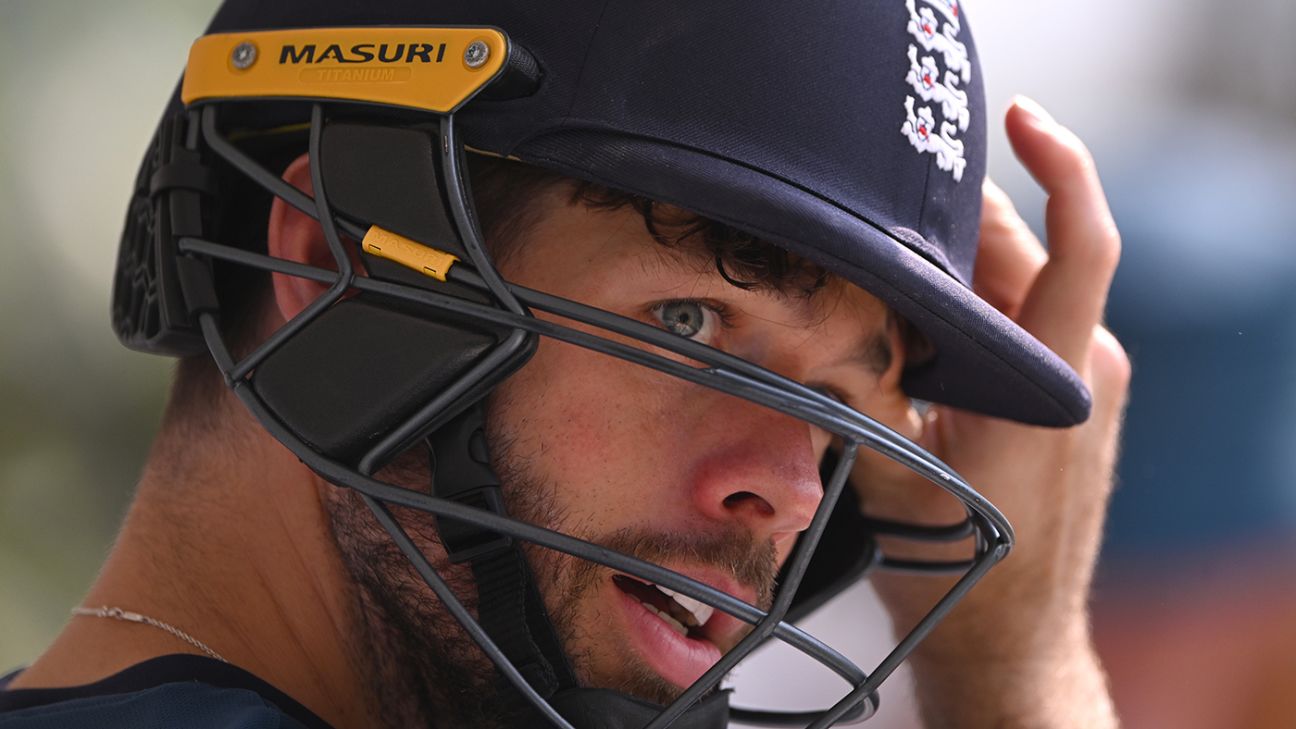It feels a bit of a missed opportunity to have the second of a five-Test series take place in the ‘City of Destiny’. Perhaps recent history was considered when sorting the order of the off-broadway venues selected for this India-England series. Only the games up front are guaranteed to be live.
But as both teams arrived in Visakhapatnam on Tuesday afternoon, a strong whiff of fate lingered in the Bay. This time next week, it could be all square, or – get this – England could be heading into their mid-series break in Abu Dhabi 2-0 up. Only those within the touring party believed this was a possibility when they arrived in India.
Some of those who experienced that tour have labelled it the worst of their lives, as much because of limitations on movement in the Covid-19 era as the unforgiving, embarrassing manner of the defeats. It is a far cry from the free-spirited atmosphere under Ben Stokes and Brendon McCullum. And so, too, is England’s mindset to cope with whatever India might have up their sleeve this week.
“Going into that, I was thinking, ‘These are horrific wickets – I just need to find a way to stay in’,” Foakes said. “I think now the group is more, if that’s the situation, you’ve got to be positive; got to put it [pressure] back on the bowler and put them under pressure.
“Before, there was more of a fear of getting out and that put us in our shells. Whereas now it’s not worrying that you are getting out and accepting that you probably are on those sort of surfaces. But how can you actually go and dominate at times as well?”
“I usually get about 25 of them,” he joked when asked about the role he assumes in such partnerships. “At Surrey, I bat at No. 5, so I just bat and that’s really an ideal situation for me, whereas playing for England, batting lower down, I’d say my game is better suited to when a batter stays in.
“The thing I’ve tried to develop when I go in is if we lose a couple of wickets, to expand early. But I think generally, throughout my career, when there’s been those kind of situations where you have to grind in is when I’ve been most successful. That’s where I need to keep improving, so it fits quite nicely into my game.”
That grind, while welcome in those situations, ultimately brought about Foakes’ axing for the Ashes last summer, when Jonny Bairstow took the gloves after recovering from injury. The sense of disappointment was all too familiar for Foakes, even if he has become used to intermittent runs in the England side since winning the first of his 21 caps in Sri Lanka in 2018.
“I obviously found it difficult,” he said. “I think with my career in England being in and out a lot, it wasn’t as if I was shocked or anything like that. For me, I find it difficult to crack on with what I’m doing.
“Obviously you go through a few emotions. One time I was at Lord’s waiting to bat [for Surrey] and Jonny took one on the finger. I was panicking, looking at the telly thinking, ‘shit, I’ve got to bat here!’ It’s more that sort of thing. I try to keep a clear mindset when there’s so much going on. It was obviously an incredible series to watch and I just enjoyed it from the sofa.”
But this should be a rare clear streak for Foakes. He was picked for this tour with a view to playing on pitches that demand immaculate keeping. Harry Brook’s return home for personal reasons made his route back into the XI a little easier, with Bairstow told to focus solely on batting at No. 5.
It took until the dying embers of the first Test for Foakes to get on the scorecard, effecting the stumpings of R Ashwin and Mohammed Siraj off Tom Hartley. He had one blemish in the match, an early half-chance off KL Rahul during India’s first innings off Joe Root’s bowling, but stressed the importance of staying level in Indian conditions.
“The more extreme the conditions you know things are occasionally going to wrong so you just have to mentally strong enough to put it out of your mind,” he said. “There is a good chance the next one is going to be a tough one.
“You’re in the game, so it’s nice as a keeper. It’s obviously a very hard place to keep, and you’re aware of that. You’re going to have some tough moments or a tough day. But you’d rather be in the game than watching the ball do nothing in front of you.
“In conditions like this, it’s about trying to think on your feet and learn because it’s not natural conditions [for me]. I’ve obviously kept away a lot and kept to spinners, but I find that Indian pitches, with the variable bounce, are up there with the hardest.”
Vithushan Ehantharajah is an associate editor at ESPNcricinfo
